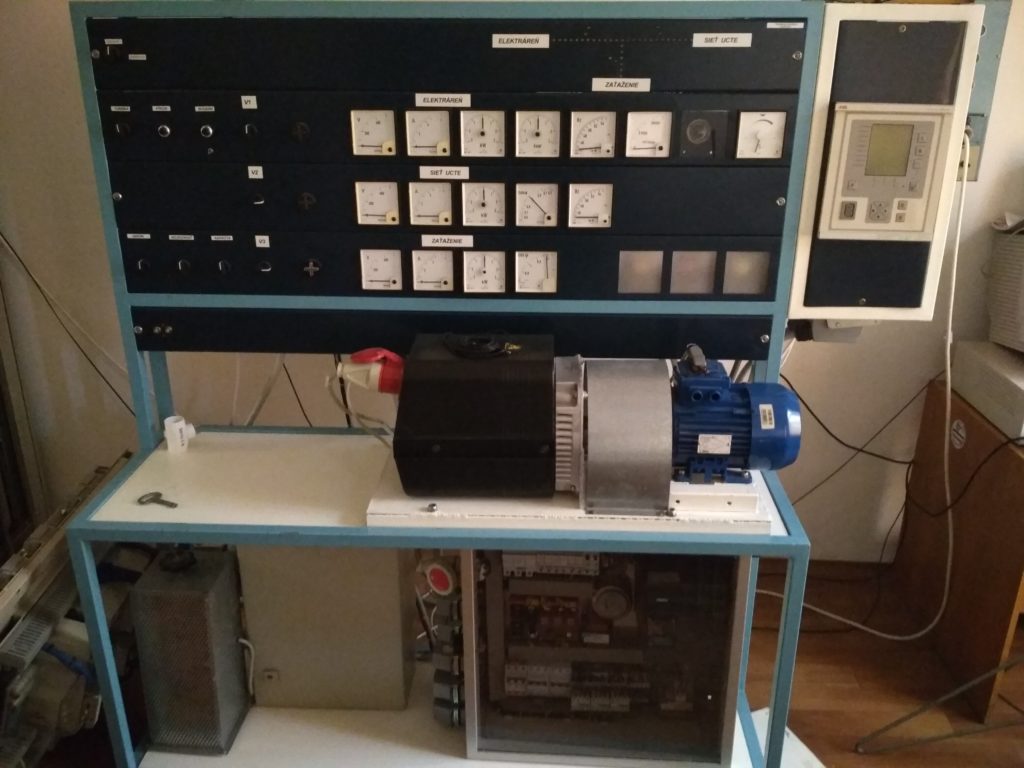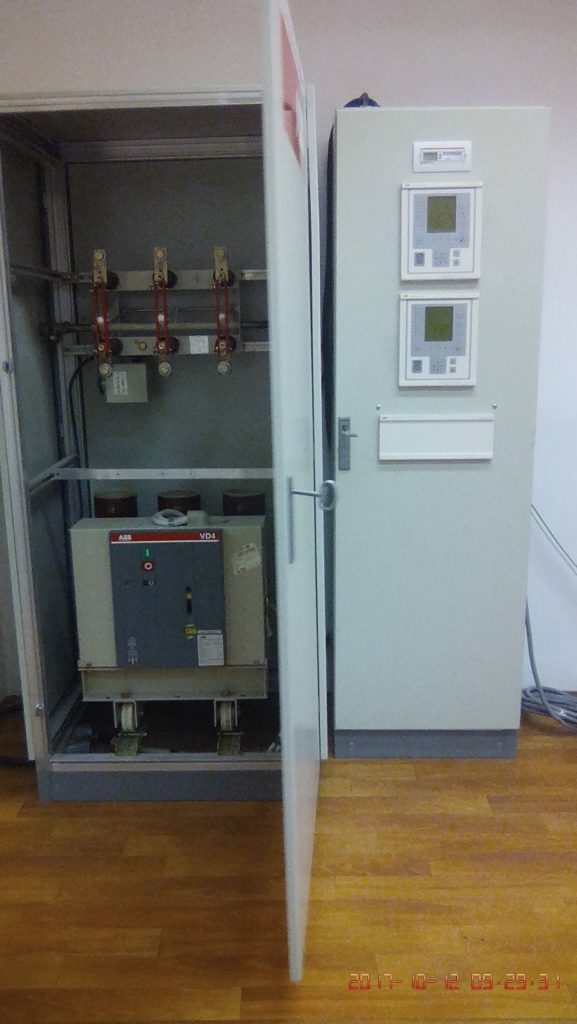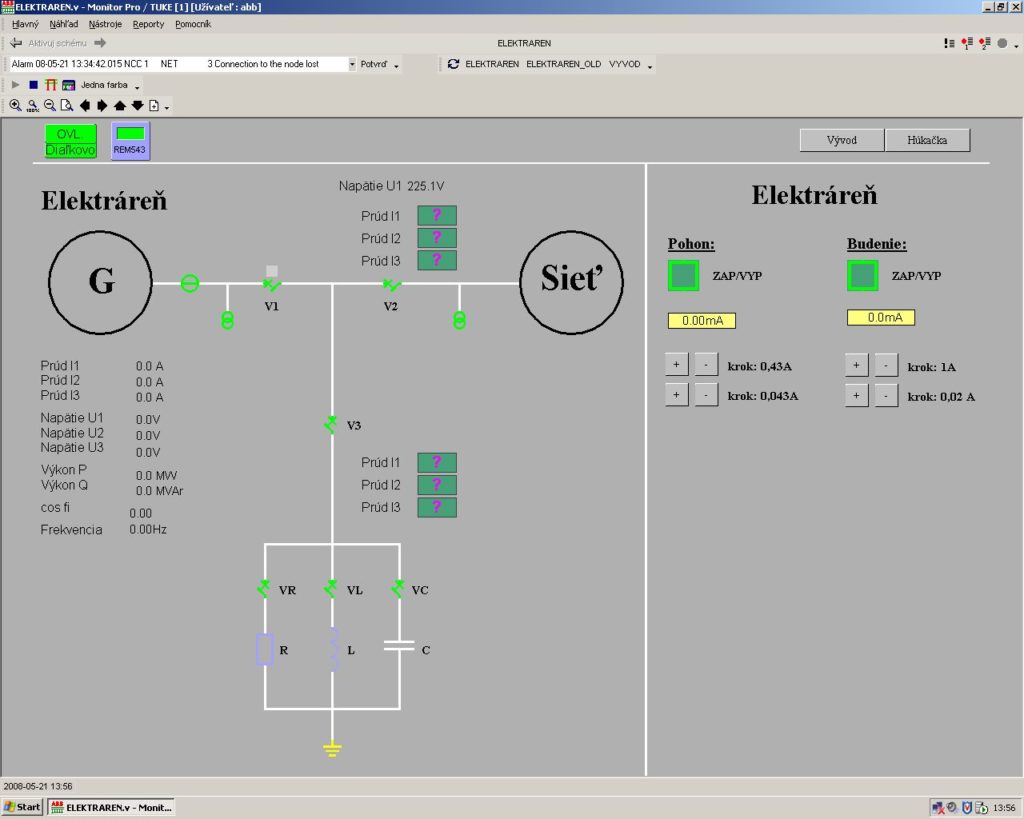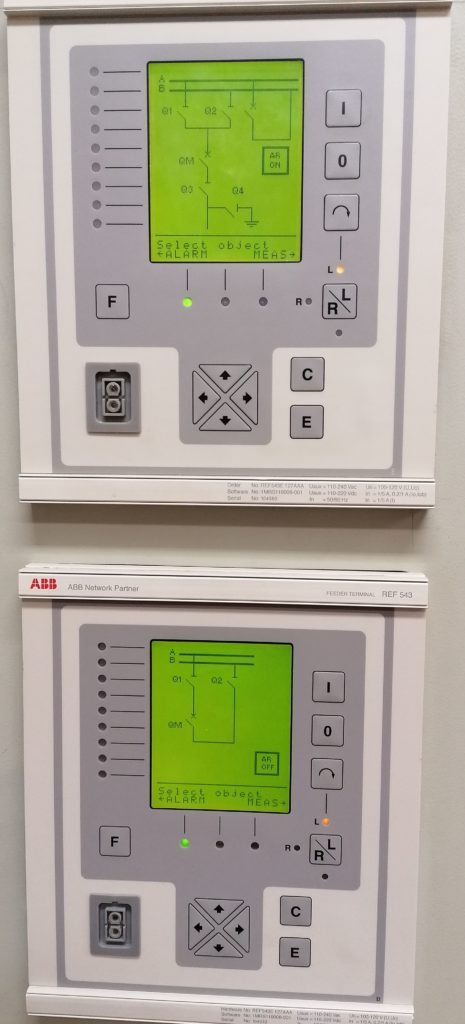Head of laboratory: Ing. Zsolt Čonka, PhD.
The laboratory is designed to study the parameters and operation of the power system. The main function of the laboratory is to ensure the educational process of students. The laboratory also serves the needs of applied research.
Subjects and outputs of education:
- Bachelor study: Subject Operation of power plants (Basic knowledge and skills in connecting the generator to the network using the method of precise synchronization).
- Bachelor study: Subject Electrical installations and stations (Basic knowledge and skills in the field of control of switching elements in electrical stations, implementation of blocking conditions during switching).
– Design solution of low voltage, high voltage, high voltage, high voltage switchgear. - Doctoral study: Subject Theoretical Power Engineering: acquisition of in-depth theoretical knowledge, using the latest research findings and trends in the development of power engineering. – modeling of elements in the electrical system. Acquisition of new methods of analysis of electrical systems. Ability to solve wave processes on lines, wave processes on lines, model and analyze electromagnetic fields, solve surface phenomena in the transmission of electricity, investigate electromagnetic transients.
- Doctoral study: Subject Scientific activity 1-5 .: Ability to independently design, construct, implement and modify a substantial part of research with scientific integrity and contribute to the original research to expand the boundaries of scientific knowledge through the implementation of an extensive set of works, some of which are worthy of peer-reviewed publications. Achieving original scientific results, acceptable at the international level. Based on the implementation of scientific research, the graduate is considered an expert in his field.
- Doctoral study: Subject Analysis of the power system: Extension of theoretical knowledge acquired in the second stage of the study with the latest research results and development trends in the field of management and operation of the power system using elements of artificial intelligence. Ability to apply information and control systems in solving the stability of the power system and one-way transmission of electricity. Gaining expanding knowledge about the degradation processes of power system equipment on the specifics of TVN in one-way ZVN lines. Ability to solve technical problems of operation of electricity systems within UCTE and problems of rationalization of electricity consumption. Knowledge of the principle and ability to work in the conditions of a liberalized electricity market.
- Doctoral study: Subject Dissertation project: Acquisition of methods of scientific work. Deepening knowledge of the topic of the dissertation. Intensive research to achieve original scientific results, acceptable at international level. The doctoral student is able to demonstrate the ability of creative independent and team work in solving a scientific research task or project by presenting results in the form of scientific publications, journals and conferences, participation in research teams of grant tasks, etc. He is able to formulate the goals of the dissertation and methods that lead to the fulfillment of its goals. He is able to design and apply scientific procedures for solutions. Can present procedures and results of his / her scientific work.
The laboratory provides students with the opportunity to simulate various operating conditions on the power plant model, such as, phasing the generator to the network, speed control, excitation control and more. The model provides a realistic overview of electrical quantities in the power system. The physical model allows students to verify their theoretical knowledge and gain experience approaching the real situation in the network.
The power plant model can be controlled manually or remotely from a PC using a SCADA system. The model consists of a motor-driven generator with measurement of voltage, current, frequency and delivered power. The panel contains synchronization for the possibility of phasing to the network. The model further consists of a substation with one busbar system. The model allows the connection and disconnection of various types of loads as well as the regulation of generator excitation.

The laboratory is also equipped with a functional 22 kV switchboard with disconnector, circuit breaker and ABB REF 543 protection. The switchboard elements can be controlled manually from the switchboard panel or via the protection interface.



